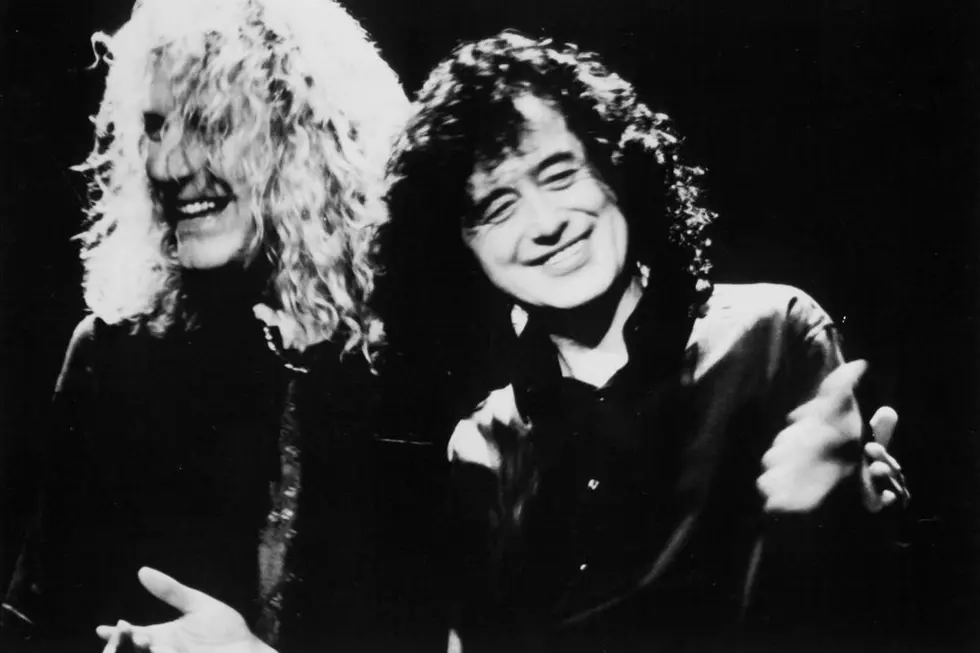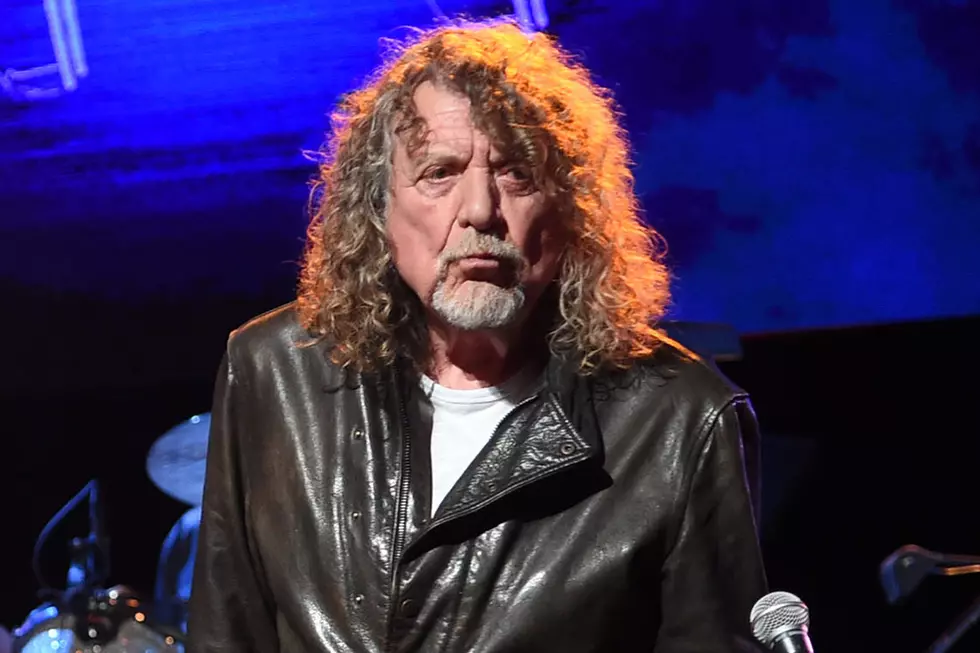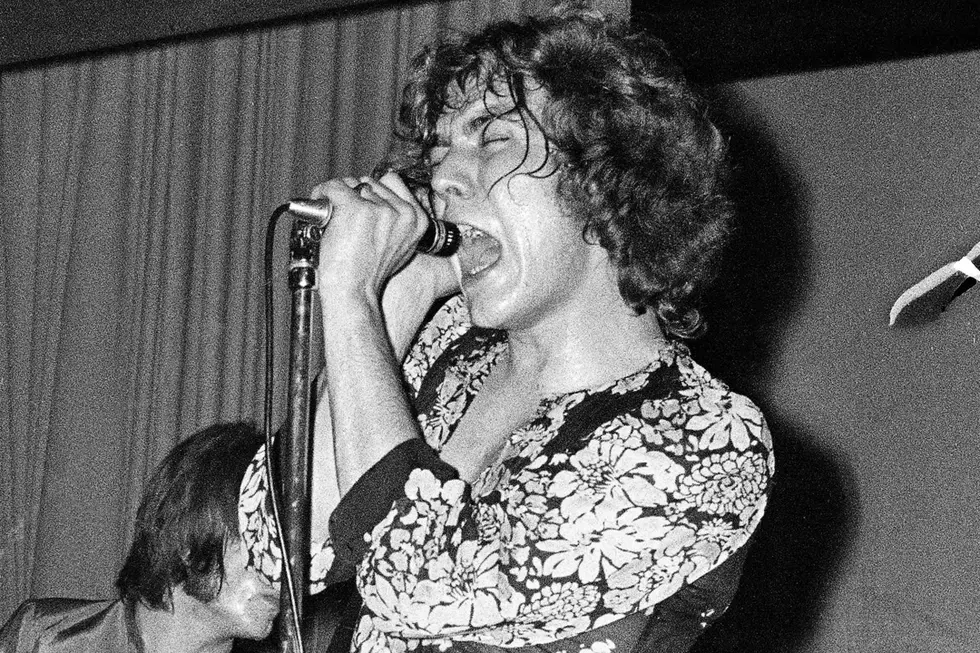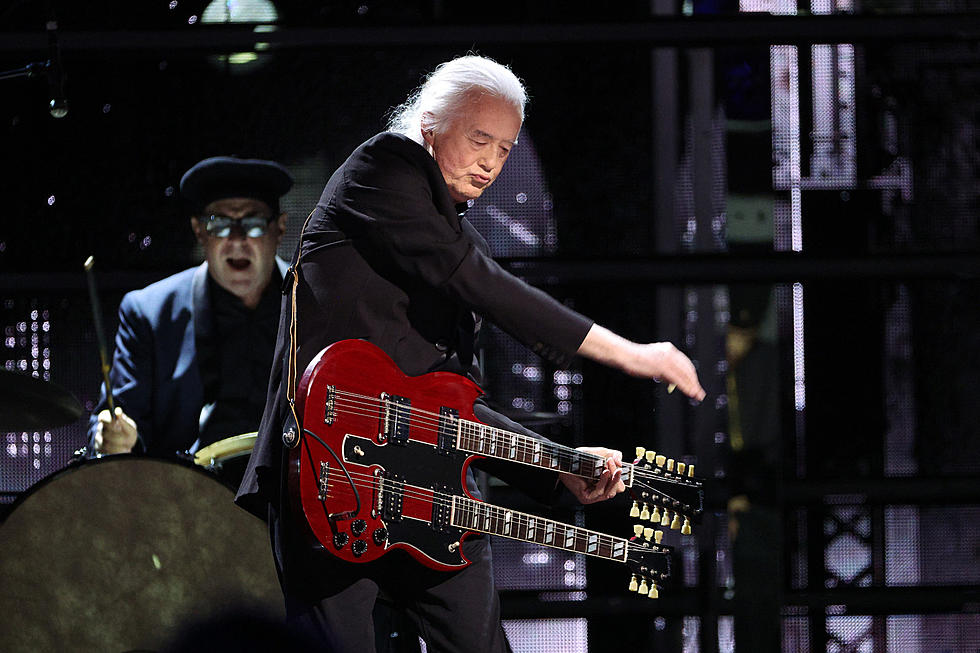
When Jimmy Page and Robert Plant Reunited on Daring ‘No Quarter’
Any Led Zeppelin fan expecting Robert Plant and Jimmy Page's long-awaited reunion to include John Paul Jones must have been stunned to find them working instead with street musicians in Marrakech, Morocco. Such were the otherworldly aims of No Quarter: Jimmy Page and Robert Plant Unledded, which was released on Oct. 12, 1994.
That the MTV special became the highest-rated Unplugged-era episode in the network's history would be less surprising if Page and Plant had offered such a rote superstar comeback. Instead, No Quarter was a genre-bending, chance-taking project where they eschewed straight-ahead renditions of songs like "Stairway to Heaven" in order to dig deeper into the Middle Eastern and classical influences that permeated "Kashmir" – and then followed that intriguing thread into brand-new sounds. The rock-star long hair remained, but everything else was different – right down to the band. Rather than fronting a raucous quartet, Page and Plant appeared with a bustling orchestra of exotic musical foils.
"The whole medium of four guys standing there being sincere is obsolete," Plant told the Los Angeles Times in 1994. "Sure, I've been touring for years in a format not unlike that, but I didn't have to fulfill any responsibility to history."
More generally, they'd already tried it – with largely deflating appearances as Led Zeppelin at Live Aid in 1985 and at the 40th anniversary Atlantic Records celebration in 1988. John Bonham's shocking 1980 death seemed to hang over those performances like a dark cloud. In between, Page and Plant rarely spoke, and never about what lay ahead.
"The MTV thing really was a catalyst," Page told Rolling Stone, "because it gave Robert time to think about things and to get in contact. And when we did, it really was the first time we had a chance to think about the future constructively – to discuss it, kick it around, see how to do it, how not to do it. And it also gave us a chance to get together to write again, which is a very key issue to everything, to see whether we'd still got that creative spark."
To those who gathered around the television set, and those who bought the album, and those who later flocked to tour dates featuring Page and Plant, No Quarter was heralded as a long-awaited Zeppelin reunion. Yet, Page was insistent: "It was not Led Zeppelin," he says in Jon Bream's Whole Lotta Led Zeppelin. "It was two members of Led Zeppelin."
As for Jones? At the time, he was touring with Diamanda Galas, an avant-garde singer – and only learned of the No Quarter project through media reports. Initially, he seemed to take the snub in stride, quipping in a separate 1994 interview with the Los Angeles Times that he only missed the private planes. Later, however, Jones was much more pointed in a conversation with Rolling Stone's Anthony DeCurtis. "I just thought I should have been informed about it," he said. "To find out about it in the papers was a bit odd." Upon the group's 1995 induction into the Rock and Roll Hall of Fame, Jones offered a cutting retort: "Thank you, my friends, for finally remembering my phone number."
What happened in the interim? "My relationship with Jonesy is hampered by one misinterpreted word at the first press conference that Page and I did to go with the 'Unledded' stuff," Plant says in Hank Bordowitz's Led Zeppelin on Led Zeppelin. "The first question to me was, 'Where's John Paul Jones?' I said, 'He's parking the car' – and that was it. Fucked for life. I apologized, and I went to one meeting and got on one knee as he was walking out – to tie my shoelace, as well – and said, 'John, surely now we're way too old for this?' But he just sidestepped me and walked out into the East London air."
Along the way, both Page and Plant indicated that one of the principal reasons they hadn't invited Jones was because of the inescapable pressure that having all three of them together would have engendered. In truth, it was never meant to be a Led Zeppelin event, anyway.
Listen to Page and Plant Perform 'Gallow's Pole'
This improbable moment actually grew out of MTV's pursuit of Plant for a solo segment of their then-popular Unplugged series. Plant, realizing that he would be expected to carry the mantel for Led Zeppelin, reached out to Page. Together, they were determined not to let this opportunity be consumed with nostalgia.
"For me to try to take the glory of Zep by myself would have been ridiculous," Plant told the Los Angeles Times at the time, "so I wondered, how could we do it together? We concluded that the only way we could do it would be to take what we did in the past, which has been talked about enough that it's rather cheesy, and take it to somewhere that people might not expect. In that way, the project would show people where we were going to be at if we were going to be careerists."
They'd end up filming in Wales, on a London soundstage and in Morocco, offering a spicy mixture of acoustic folk, old blues, new songs that drew inspiration in part from found African drum patterns and – yes – some imaginatively updated Led Zeppelin, as well. The London date included Plant's then-current rhythm section, as well as 12 Egyptian musicians and 29 string musicians.
But first, there was a decidedly awkward initial meeting.
"My only problem approaching Jimmy," Plant told Rolling Stone, "was that we'd never, ever had a conversation in 14 years about the future together. We'd been bundled into these compromising, well-meaning situations – the charity shows, stuff like that – where there was no preamble, just a conversation on the phone or a conversation between other parties. It's ridiculous how we really didn't even know each other. We knew what we knew from way back and that was colored by the passing of time. But I don't think we knew where we were coming from now."
In its way, that made starting anew, rather than trying to simply recreate the past, an easier path to follow. "The whole deal is that there has always been some kind of ridiculous responsibility. That's what I wanted to get rid of," Plant added. "I didn't want to be responsible for everybody's idea of what it was before. Fuck that. There's no point in trying to pretend that you're immortal and that you've returned once again to do that ultimate version of 'Stairway to Heaven.'"
It's seemed, in this moment, that their lengthy collaborative relationship had been rekindled for good. "The fact that all our misgivings, and the time that had gone by, were so easily moved aside in the union of writing made our new collaboration easy, if not simple," Plant told the Times. "It made us think that we could be open to what might come next, when we don't have to work over our old material, but when we can do something that's brand new."
After four more years – a lot of which was spent touring together in support of No Quarter – a proper studio effort followed, 1998's Walking Into Clarksdale. Nine years later, Page and Plant would take the stage again with Jones as Led Zeppelin.
Top 10 Concert Films
Was Jimmy Page Almost Part of a New Supergroup?
More From Ultimate Classic Rock









